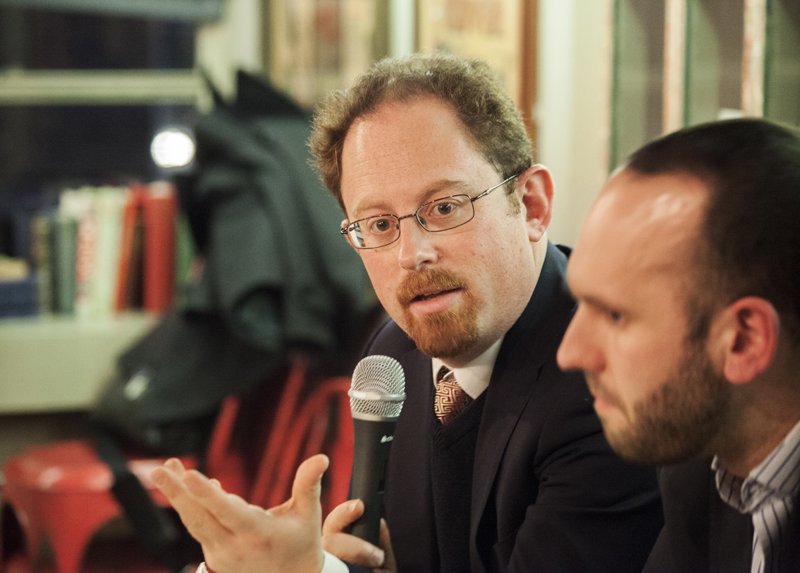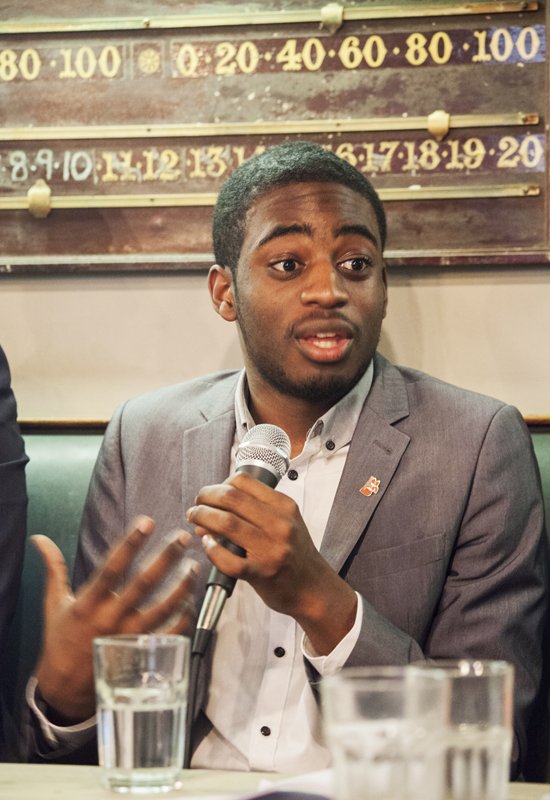Shared values: Politics and social media
Our fourth social media masterclass got topical as the UK heads towards another General Election. With Shared values: Politics and social media we explored how public figures, charities and the media use social to spread their message and reach new audiences.
Taking place on 26th March 2015, this was our most ambitious event to date. The expert panel tackled the nitty-gritty of using social to complement highly visible public campaigns and (hopefully) make changes for the better.
We had all the bases covered, with Julian Huppert joining us from the Liberal Democrats, Richard Lane from Scope (formerly Stonewall and Barack Obama campaign), Rhammel Afflick from the British Youth Council and Rhodri Marsden representing the Independent.
In pictures
Which platform wins?
Twitter was the hands-down winner when it came to which platform our panel used most. The immediacy and digestible nature of the humble tweet is perfect for reaching large numbers of people in the shortest span of time.
Rhodri showed love for the way Twitter seemed tailor made for his trademark pithy observations, while Richard wasn't afraid to highlight the way in which the platform can be used to mock your opponents, a powerful weapon in the right hands.
Julian expressed his liking for how easy Twitter makes it for him to reach constituents, but talk quickly turned to the potential downfalls of the platform. Namely, the Twitter mob and associated trolls. He observed that people whose doors he'd knock on and have a perfectly polite conversation could well be the same people sending him abuse online.
Nuance was also a casualty of Twitter's shorthand nature. Rhodri noted that people seem inclined to believe anything if it comes in .jpg format. By the same token, he once heard a seemingly impressive statistic, that the UK consumes 120 million pies each year. That sounds like a lot of pie until you realise it works out as just one pie per Brit every six months. Rubbish! Would be interesting to hear what piemaker Sarah Pettegree - a previous Masterclass guest - would have had to say about this.
Social media shaping politics
Ultimately, this event was about using social to influence and engage people with your ideology. Rhammel praised social for the way it gives people the tools to empower themselves and not rely on others to do it for them. On the other hand, he was critical of banal 'clicktivism.'
In fact, most of the panel were quick to point out how, sooner or later, your social media circle is likely to end up consisting solely of people who already agree with you. To Richard there's no such thing as a 'social media election.' Knocking on doors and shaking hands won the election for Barack Obama, whose campaign he worked on, social just helped a lot.
That being said, the evening was full of stories showing the power of social media. Richard was privy to a situation where Twitter's scheduled maintenance would clash with elections in Iran. No Twitter would render people less able to talk freely, so the US government contacted Twitter directly and persuaded them to change the timing of the maintenance.
Tips and tricks
The take home message from the evening was one of authenticity. Julian highlighted his distrust of Twitter feeds which start tweeting at 9AM and finish at 5PM. He was also less than enthusiastic about the corporate language used in official party tweets.
Each panellist, in his own way, stressed the human connections which social can amplify. This is where you can step outside the world of press releases and statements in order to show who you are and why you choose to uphold the values you stand for.
This can be a double-edged sword, of course, in cases like the gaffe-prone UKIP (not to be confused with the UK Youth Parliament, UKYP). However, Rhodri observed that perhaps a mandatory, filter-free stream from politicians would help the public see the reality behind the political game.
And as for avoiding gaffes in the first place? Julian was confident that simply not tweeting anything you wouldn't say in person is the way to avoid the mob without neutering your position. Rhodri nicely shortened this mantra to four simple words for the audience to go home with: "Don't be a dick."
On the front bench
Julian Huppert, Liberal Democrat MP for Cambridge since 2010. Julian was recently named as one of the top three MPs on Twitter by the impartial blog politics.co.uk.
Rhodri Marsden, technology columnist for The Independent as well as the brains behind @drunkfurniture and @firstdatehell
Richard Lane, head of campaigns for Scope and formerly in charge of overseeing the huge social media presence of LGBT charity, Stonewall. He also worked on the election campaigns for Hillary Clinton and Barack Obama.
Rhammel Afflick, Communications and Media Officer for the British Youth Council and writer for The Huffington Post. Rhammel also runs a creative services business.
Special thanks
The good people at the Cambridge Brew House were fantastic hosts as always! We're also eternally grateful to the super-talented Lizzy Doe for her photography and Colin Ramsay for the top cinematography.
More info
Join Sookio Masterclasses on Meetup
Straight-talking social media on LinkedIn
Join the Sookio mailing list
Book social media training in Cambridge
Straight-talking social media on Meetup
On the blog
Sookio Masterclass: So. How do you fit it all in?
Sookio Masterclass: The art of using image and video in social media
Our first Sookio Masterclass event. What did you miss?
Who to follow
@Rhodri Marsden
Richard Lane: @politicana
Rhammel Afflick: @rhammified
All donations to Scope and British Youth Council very welcome.




































